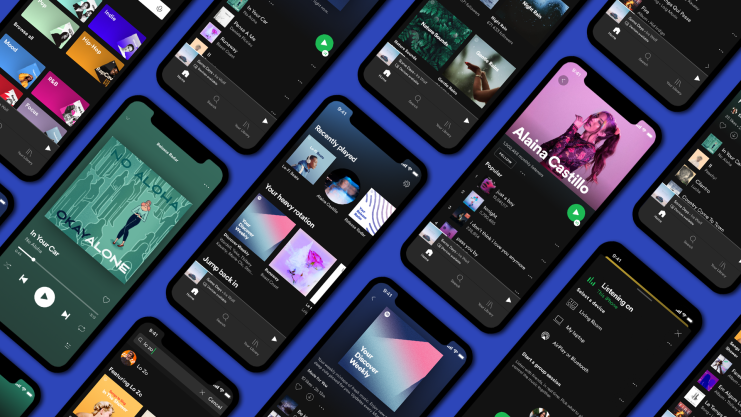Spotify earnings: Is the music streaming giant facing a subscriber lag?

Spotify will be in the spotlight this afternoon as it reports its first-quarter figures, with all eyes on the streaming giant’s subscriber numbers.
The Swedish music platform enjoyed a bumper year in 2020, with paid subscribers hitting 155m thanks to higher demand for music and podcasts during the pandemic.
But Spotify warned that pace of growth was unlikely to continue as global lockdown restrictions began to ease, with some of its new sign-ups pulled forward as a result of Covid.
The company has forecast a maximum of 3m additional paid subscribers in the first quarter, down from 6m in the same period last year and well below the 11m recorded in the last three months of 2020.
But even these conservative estimates could be under pressure after Netflix last month reported a surprise slowdown in first-quarter subscriber growth, leading analysts to question whether the lockdown streaming boom could be coming to an end. Spotify also this week raised its prices on some of its subscription tiers for users in the UK and US.
Tom Johnson, chief transformation officer of Mindshare Worldwide, said the price hike “has to be viewed as a calculated risk”.
“Despite the company benefiting from a boost in its subscriber numbers through 2020, as did most subscriber-based entertainment services as we all spent more time at home, it failed to convert this into better financial results,” he said.
“Raising subscription prices now indicates that Spotify feels that it can do this without losing significant numbers of users as a result.”
Advertising boost

Despite concerns about an end to the pandemic party, Aaron Goldman, chief marketing officer at Mediaocean, suggested that comparisons with Netflix’s subscriber slowdown may be overblown.
“In addition to subscriptions, Spotify also monetises via advertising and its ability to deliver targeted messages to logged in users gives it an advantage over web properties that rely on cookies and other measures to resolve user identity,” he said.
Chris Beer, market intelligence manager at GWI, added that Spotify also had greater depth of content than its video streaming rivals, and had also been unaffected by disruption to the production industry.
“Film and TV services rely much more on exclusives, whereas almost all music streaming services have access to the same content library — meaning their users don’t tend to become fatigued with them,” he said.
Podcast push
Another key area for Spotify will be podcasts, and the company has spent more than half a billion dollars snapping up podcast firms in recent years as it looks to get ahead.
But competition is heating up. Facebook this week announced plans to roll out an in-app podcast player, while Apple has launched a paid subscription service for podcasts, forcing Spotify to follow suit.
Paul Reynolds, managing director at creative agency Massive Music said it was “clear that the podcasting battle lines have been drawn among the tech giants”.
“Spotify is still an attractive platform for advertisers; its enormous subscriber base is enviable compared to the next best platforms, and is regularly expanding into new markets. A new global strategy to force premium subscribers to listen to podcast adverts will also surely be music to the ears of advertisers,” he said.
But after it emerged boss Daniel Ek is preparing a bid to buy Arsenal Football Club, Reynolds warned that Spotify had to be “wary not to stray too far from its position in the music industry and its responsibility to recording artists and songwriters by being too aggressive in its hunt for new revenue streams”.